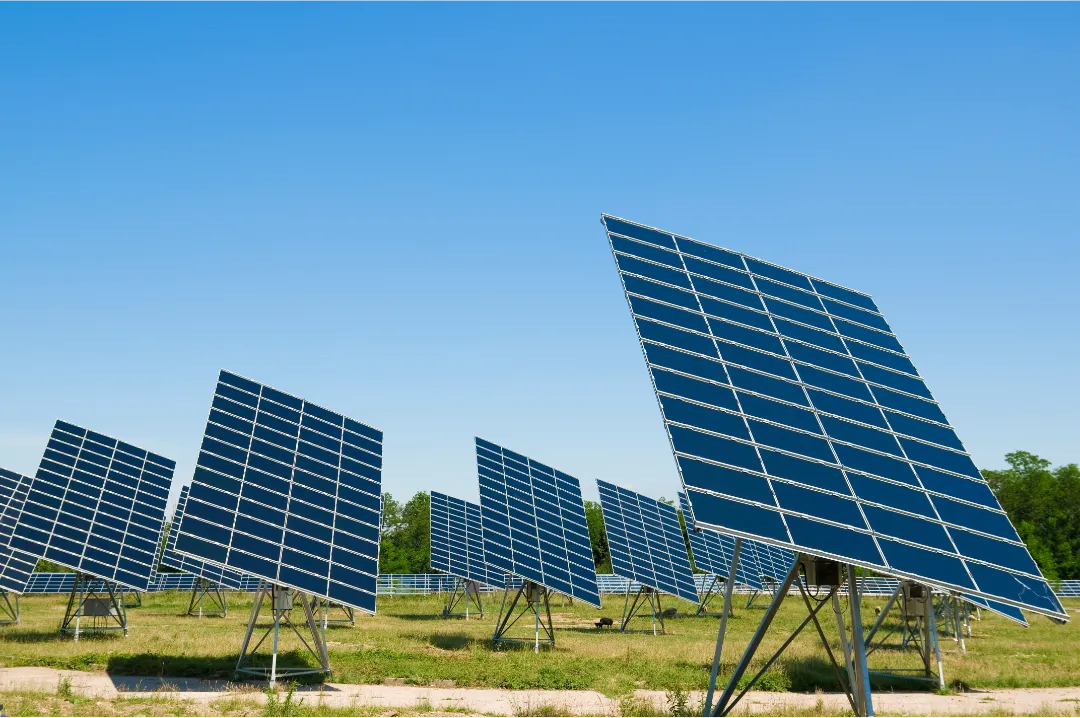PALM HARBOR SOLAR PROS BLOG
Insights from Our Solar Energy Journey

Green Living With Solar Energy: Eco-Friendly Solutions for Every Home
Have you ever wondered if it's truly possible to live a greener lifestyle while simultaneously saving money? Well, let me tell you, the answer lies within the power of solar energy. With the increasing popularity of solar panels and their eco-friendly benefits, it's becoming clear that solar energy is not just a passing trend, but a viable solution for every home. But how exactly can solar energy lead to a greener and more sustainable way of living? In this discussion, we will explore the basics of solar energy, its benefits for the environment, and how it can help you save money. So, let's dive into the world of green living with solar energy and discover the eco-friendly solutions that await us.
Understanding Solar Energy Basics
To understand the basics of solar energy, we need to explore its fundamental principles and applications. Solar energy is a renewable source of power that is harnessed from the sun's rays. It can be converted into electricity through the use of solar energy technology. Solar energy applications have been widely adopted in various sectors, including residential, commercial, and industrial.
One of the primary applications of solar energy is in generating electricity for homes. Solar panels, also known as photovoltaic panels, are installed on rooftops to capture sunlight and convert it into usable electricity. This clean and sustainable energy source reduces reliance on fossil fuels and helps to mitigate climate change.
Solar energy technology has advanced significantly over the years, making it more accessible and cost-effective. Improvements in solar panel efficiency, storage systems, and installation methods have made solar energy a viable option for homeowners. Additionally, government incentives and tax credits have further encouraged the adoption of solar energy.
Benefits of Solar Power for the Environment
Solar power offers numerous environmental benefits that contribute to a cleaner and more sustainable future. One of the key advantages of solar power is its ability to reduce emissions. Unlike traditional energy sources such as coal or natural gas, solar energy does not produce harmful greenhouse gases or pollutants when generating electricity. This significantly decreases the carbon footprint and helps combat climate change.
Furthermore, solar power is derived from renewable energy sources. The sun, which is the primary source of solar energy, is an abundant and inexhaustible resource. By harnessing the power of the sun, we can reduce our dependence on finite fossil fuels and move towards a more sustainable energy system. This not only reduces the depletion of natural resources but also mitigates the negative environmental impacts associated with fossil fuel extraction.
In addition to reducing emissions and utilizing renewable energy sources, solar power also helps to improve air quality. Traditional energy generation methods often release pollutants such as sulfur dioxide, nitrogen oxide, and particulate matter into the atmosphere. These pollutants contribute to air pollution and can have harmful effects on human health. By adopting solar power, we can significantly reduce air pollution and improve the overall quality of the air we breathe.
How Solar Energy Can Save You Money
By installing solar panels, homeowners can significantly reduce their monthly electricity bills. Solar energy provides a clean and renewable source of power that can generate electricity for your home, reducing your reliance on traditional energy sources. This can lead to substantial cost savings over time. In addition to the savings on your electricity bills, there are also solar energy tax incentives that can further reduce the upfront costs of installing solar panels.
One of the major ways solar energy can save you money is through the reduction of your electricity bills. By generating your own electricity with solar panels, you can offset a significant portion of your energy consumption from the grid. This means that you will be drawing less electricity from your utility company, resulting in lower monthly bills. Depending on the size and efficiency of your solar system, you may even be able to eliminate your electricity bills entirely.
Furthermore, there are various solar energy tax incentives available that can help offset the cost of installing solar panels. These incentives can include federal tax credits, state and local rebates, and other financial incentives. By taking advantage of these incentives, you can significantly reduce the upfront cost of installing solar panels, making it a more affordable and cost-effective solution for your home.
Installing Solar Panels: A Step-by-Step Guide
We will now walk you through the process of installing solar panels in your home. When it comes to cost-effective installation, it's essential to hire a reputable solar panel installer. They will assess your property's suitability, taking into account factors like roof orientation, shading, and available space. The installer will then design a customized solar energy system that meets your energy needs.
Once the design is finalized, the installation process begins. The installer will mount the solar panels on your roof using specialized brackets and hardware. They will connect the panels to an inverter, which converts the direct current (DC) energy generated by the panels into usable alternating current (AC) energy. This AC energy is then connected to your home's electrical system.
After the installation is complete, regular maintenance is crucial to ensure optimal performance and longevity of your solar panels. This includes cleaning the panels to remove dust and debris that can reduce their efficiency. It's also important to regularly inspect the system for any signs of damage or wear and tear.
In case of any necessary repairs, it's recommended to contact a professional solar panel repair service. They have the expertise to diagnose and fix any issues that may arise with your solar energy system.
Maximizing Solar Energy Efficiency in Your Home
To ensure optimal utilization of solar energy in our home, it is crucial for us to implement energy-efficient practices. One way to maximize solar energy efficiency is by utilizing solar energy for heating. Solar heating systems can be used to heat water for showers, baths, and even swimming pools. These systems use solar panels to collect sunlight and convert it into heat, which can then be used to warm water. By harnessing the power of the sun, we can reduce our reliance on conventional heating methods and save on energy costs.
Another way to improve solar panel performance is by keeping them clean and free from debris. Dust, dirt, and leaves can accumulate on the surface of solar panels, reducing their efficiency. Regular cleaning and maintenance can help ensure that the panels are able to capture as much sunlight as possible. Additionally, positioning the panels at the optimal angle and direction can also enhance their performance. By facing the panels towards the sun and adjusting their tilt according to the season, we can maximize their exposure to sunlight and generate more electricity.
Exploring Innovative Solar Energy Solutions
After maximizing solar energy efficiency in our homes, it is time to explore innovative solutions that can further enhance the utilization of this renewable energy source. Solar energy advancements have come a long way in recent years, and the future of solar power looks promising. One exciting innovation is the development of solar panels that are more efficient and cost-effective. These panels use advanced technologies, such as thin-film and multi-junction cells, to convert sunlight into electricity more efficiently than traditional silicon-based panels. Additionally, researchers are exploring new materials, like perovskite, that have the potential to revolutionize solar panel design and increase their efficiency even further.
Another exciting development in the field of solar energy is the integration of energy storage systems. By combining solar panels with batteries, homeowners can store excess energy generated during the day for use during the night or on cloudy days. This not only increases self-sufficiency but also reduces reliance on the grid, making solar energy a more reliable and sustainable solution.
Furthermore, there is ongoing research in the field of solar thermal energy, which focuses on using the sun's heat to generate electricity or provide hot water for residential use. These advancements have the potential to further expand the applications of solar energy in our daily lives.
Conclusion
In conclusion, embracing solar energy is a practical and eco-friendly way to live a greener life. Not only does it benefit the environment by reducing carbon emissions, but it also offers significant cost savings in the long run. By following a step-by-step guide to installing solar panels and maximizing their efficiency, every home can contribute to a sustainable future. Let's harness the power of the sun and make a positive impact on our planet.
Connect With Us
Locations We Serve:
© Copyright 2026 Palm Harbor Solar Pros. All Rights Reserved.
Terms & Conditions | Privacy Policy

